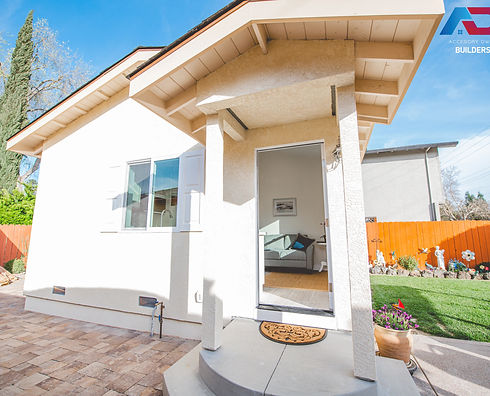
Services
Detached ADU
Perfect for offering independent living to family members while staying nearby.
What are detached ADUs?
Detached ADUs are newly constructed dwelling units that are created on a lot with an existing or proposed single-family or multifamily dwelling structure but are detached from the primary dwelling.
Source: ADU Handbook 2025 by HCD


Best Uses of a Detached ADU

Retirement Home
Offers the privacy needed for seniors to maintain their independence, with the safety net of family nearby to assist with healthcare or daily needs.

Adult Child’s First Home
A detached ADU can serve as a transitional space for adult children who are saving for their own home. It provides them independence and privacy, while still keeping family support close by.

Professional Consultancy Office
Ideal for consultants, therapists, or private practice professionals who require a quiet, separate environment to meet with clients.

In-Law Suite
Ideal for in-laws as it provides complete privacy and autonomy, maintaining family harmony by balancing closeness with personal space.

Extended Family Stays
Provides a comfortable, private space for long-term guests or family members staying for extended periods, maintaining family bonds without crowding the main house.

Hobby Workshop
Perfect for loud and space-consuming hobbies like woodworking, it keeps the main house free of clutter and noise.
Want to build your own ADU but don't know how to start?
Consult with Us Now
By requesting a callback using our form.









